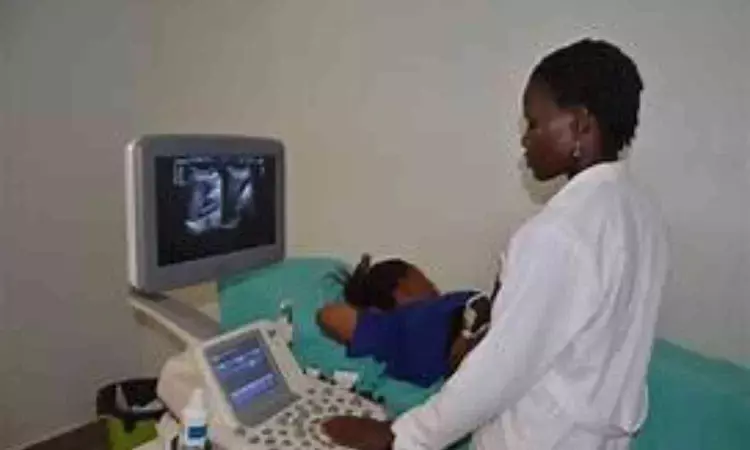- Home
- Medical news & Guidelines
- Anesthesiology
- Cardiology and CTVS
- Critical Care
- Dentistry
- Dermatology
- Diabetes and Endocrinology
- ENT
- Gastroenterology
- Medicine
- Nephrology
- Neurology
- Obstretics-Gynaecology
- Oncology
- Ophthalmology
- Orthopaedics
- Pediatrics-Neonatology
- Psychiatry
- Pulmonology
- Radiology
- Surgery
- Urology
- Laboratory Medicine
- Diet
- Nursing
- Paramedical
- Physiotherapy
- Health news
- Fact Check
- Bone Health Fact Check
- Brain Health Fact Check
- Cancer Related Fact Check
- Child Care Fact Check
- Dental and oral health fact check
- Diabetes and metabolic health fact check
- Diet and Nutrition Fact Check
- Eye and ENT Care Fact Check
- Fitness fact check
- Gut health fact check
- Heart health fact check
- Kidney health fact check
- Medical education fact check
- Men's health fact check
- Respiratory fact check
- Skin and hair care fact check
- Vaccine and Immunization fact check
- Women's health fact check
- AYUSH
- State News
- Andaman and Nicobar Islands
- Andhra Pradesh
- Arunachal Pradesh
- Assam
- Bihar
- Chandigarh
- Chattisgarh
- Dadra and Nagar Haveli
- Daman and Diu
- Delhi
- Goa
- Gujarat
- Haryana
- Himachal Pradesh
- Jammu & Kashmir
- Jharkhand
- Karnataka
- Kerala
- Ladakh
- Lakshadweep
- Madhya Pradesh
- Maharashtra
- Manipur
- Meghalaya
- Mizoram
- Nagaland
- Odisha
- Puducherry
- Punjab
- Rajasthan
- Sikkim
- Tamil Nadu
- Telangana
- Tripura
- Uttar Pradesh
- Uttrakhand
- West Bengal
- Medical Education
- Industry
AI Tool Enhances Accuracy in Estimating Gestational Age from Blind Ultrasound Scans: Study

USA: A study published in JAMA Network found that a handheld ultrasonography device equipped with artificial intelligence, when used by novice operators, estimated gestational age as accurately as experienced sonographers utilizing conventional ultrasound machines.
Accurate gestational age (GA) assessment is crucial for quality pregnancy care, yet access to ultrasonography is often limited in low-resource settings.
Jeffrey S. A. Stringer, MD et. al. aimed to assess the accuracy of gestational age estimation using an AI-enabled ultrasonography tool operated by novice users without prior sonography training. The study developed a deep learning artificial intelligence (AI) model to estimate GA from blind ultrasonography sweeps, integrating it into the software of an affordable, battery-powered device.
The primary outcome measure was the mean absolute error (MAE) of both the index test and the study standard. It was determined by comparing each method’s gestational age estimate to the previously established GA, with equivalence defined as a difference within a prespecified margin of ±2 days.
This prospective diagnostic accuracy study enrolled 400 participants with viable, single, non-anomalous, first-trimester pregnancies in Lusaka, Zambia, and Chapel Hill, North Carolina. Credentialed sonographers established the "ground truth" gestational age (GA) using transvaginal crown-rump length measurement. At random follow-up visits throughout the pregnancy, including a primary evaluation window from 14 weeks 0 days to 27 weeks 6 days of gestation, novice users performed blind sweeps of the maternal abdomen using the AI-enabled device (index test). Meanwhile, credentialed sonographers conducted fetal biometry using high-specification machines (study standard).
The key points of the research are as follows:
In the primary evaluation window, the AI-enabled device achieved equivalence with the study standard, with a mean absolute error of 3.2 days compared to 3 days.
The percentage of assessments within 7 days of the established gestational age was similar between the two methods: 90.7% for the AI device and 92.5% for the study standard.
The device's performance was consistent across prespecified subgroups, including participants from both the Zambia and North Carolina cohorts, as well as those with a high body mass index.
The researchers concluded that between 14 and 27 weeks gestation, novice users without prior ultrasonography training could estimate gestational age as accurately with a low-cost, point-of-care AI tool as credentialed sonographers using high-specification machines for standard biometry. The research findings have significant implications for enhancing obstetric care in low-resource environments, aligning with the World Health Organization's objective to provide gestational age estimation for all pregnant individuals.
Reference
Stringer JSA, et al "Diagnostic accuracy of an integrated AI tool to estimate gestational age from blind ultrasound sweeps" JAMA 2024; DOI: 10.1001/jama.2024.10770.
Dr Kamal Kant Kohli-MBBS, DTCD- a chest specialist with more than 30 years of practice and a flair for writing clinical articles, Dr Kamal Kant Kohli joined Medical Dialogues as a Chief Editor of Medical News. Besides writing articles, as an editor, he proofreads and verifies all the medical content published on Medical Dialogues including those coming from journals, studies,medical conferences,guidelines etc. Email: drkohli@medicaldialogues.in. Contact no. 011-43720751


